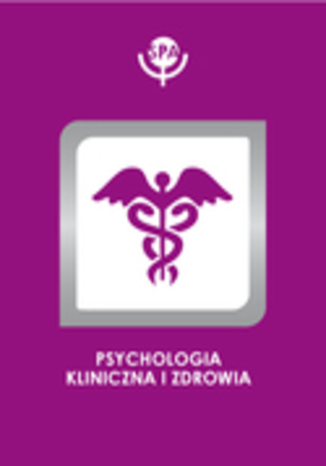Array
(
[id] => 292
[date] => 2019-03-12
[doi] => 10.14691/CPPJ.24.3.559
[title] => Idea coachingu osób z fizyczną niepełnosprawnością
[title_en] => THE IDEA OF COACHING PEOPLE WITH PHYSICAL DISABILITY
[authors] => Maciej Pasowicz
[abstract] => Coaching is about supporting your client in reaching for important goals and overcoming obstacles. The most popular model of coaching is the ericksonian coaching model presented by Marylin Atkinson. The model is based on the works of a famous psychotherapist, Milton Erickson (Atkinson and Chois, 2007; Mukoid, 2014a, 2014b). Ericksonian coaching is a goal-oriented and resources-oriented, nondirective procedure. Because of its characteristics, this model seems to be a suitable method of psychological rehabilitation of people with physical disabilities. These people need to develop methods of reaching important life goals despite the obstacles they face up with (Kerr, 1977; Kowalik, 2007, 2018). They also struggle with a loss of resources they use in order to keep a status quo in every-day functioning (Kowalik, 2007, 2018). What is more, they may encounter a negative response from their social surrounding and/or have negative believes about themselves (Dąbrowska, 2006; Watson and Larson, 2006; Trammell, 2009; Rękosiewicz and Brzezińska, 2011). Despite the fact that coaching seems to be a suitable method of psychological rehabilitation of people with physical disabilities, there are hardly any research into this area of coaching psychology (Moore, 2009; Grant et al., 2009; Stern and Stout-Rostron, 2013; Theebooma, Beersmaa and van Vianena, 2013; Keenan et al., 2014).
[abstract_en] => Coaching is about supporting your client in reaching for important goals and overcoming obstacles. The most popular model of coaching is the ericksonian coaching model presented by Marylin Atkinson. The model is based on the works of a famous psychotherapist, Milton Erickson (Atkinson and Chois, 2007; Mukoid, 2014a, 2014b). Ericksonian coaching is a goal-oriented and resources-oriented, nondirective procedure. Because of its characteristics, this model seems to be a suitable method of psychological rehabilitation of people with physical disabilities. These people need to develop methods of reaching important life goals despite the obstacles they face up with (Kerr, 1977; Kowalik, 2007, 2018). They also struggle with a loss of resources they use in order to keep a status quo in every-day functioning (Kowalik, 2007, 2018). What is more, they may encounter a negative response from their social surrounding and/or have negative believes about themselves (Dąbrowska, 2006; Watson and Larson, 2006; Trammell, 2009; Rękosiewicz and Brzezińska, 2011). Despite the fact that coaching seems to be a suitable method of psychological rehabilitation of people with physical disabilities, there are hardly any research into this area of coaching psychology (Moore, 2009; Grant et al., 2009; Stern and Stout-Rostron, 2013; Theebooma, Beersmaa and van Vianena, 2013; Keenan et al., 2014).
[keywords] => coaching, psychology, disability, rehabilitation, adaptation, flourishing
[keywords_en] => coaching, psychology, disability, rehabilitation, adaptation, flourishing
[file_path] => /files/articles/2018-24-idea-coachingu-osb-z-fizyczn-niepenosprawnoci.pdf
[okladka] => psychologoia_kliniczna_i_zdrowia.jpg
[rocznik] => Rocznik: 2018 Tom: 24 Numer: 3
[strony] => 559-562
)










 Pobierz pełny tekst
Pobierz pełny tekst



